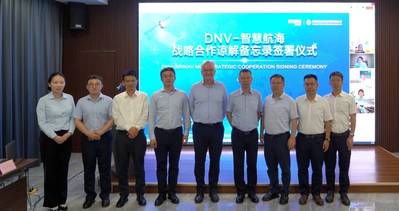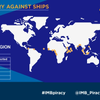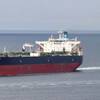DNV, Brinav Team Up for Autonomous Shipping Technologies
Classification society DNV and Navigation Brilliance (Brinav) have signed a memorandum of understanding (MoU) to collaborate in fast-tracking the development and approval of autonomous and remote-controlled shipping technologies.
The signing of the MoU signifies a wider collaboration effort between DNV and Brinav and a strategic step towards realizing the potential of the autonomous technology for maritime industry.
Brinav, a specialist in maritime autonomy and green technologies, has started the work to obtain the Type Approval of their situational awareness system, and will also work towards obtaining the Type Approvals necessary for its autonomous navigation, remote-control, and navigation assistance products. DNV will support Brinav with approval of autonomous vessel functions.
The collaborative efforts include developing assurance for novel technologies with DNV’s expertise, utilizing the 220 NM² test area around Nv Island in Qingdao for autonomous ship testing, and supporting Brinav in approval of autonomous functions in new-building projects.
They are fully supported with joint expertise from DNV, Qingdao Station and Technical Center China, facilitated by Smart Center, an organization which is dedicated to collaboration with leading pioneer customers in the areas of digitalization and decarbonisation.
“Maritime Autonomous Surface Ships (MASS) have emerged as a key focus in the global maritime industry, driven by collaborative efforts across the sector. The development of MASS involves the integration of advanced technologies and interdisciplinary expertise, necessitating close cooperation between autonomous navigation system developers and classification societies,” said Jiang HaiYing, CEO of Brinav.
“As the number of autonomous vessel projects increases, we believe that there will be an uptick in the use of this kind of technology across the maritime industry as the merchant fleet seeks improved efficiency and safety.
“We believe that, as a first step, verifying and approving the external situational awareness system is key for this development. An external situational awareness system will need to be as good or better than a human navigator and is one of the most important systems for realizing autonomous vessel operation,” added Jarle Coll Blomhoff, Head of Digital Ship Systems at DNV.
Autonomous shipping, ranging from remote control operation to fully unmanned vessels, represents a significant advancement in the maritime industry. The technology can deliver a wide range of benefits, from improved safety to reduced emissions.
However, as autonomy is gradually implemented in newbuilds and existing vessels making them increasingly more connected and integrated, new safety risks must be considered.














